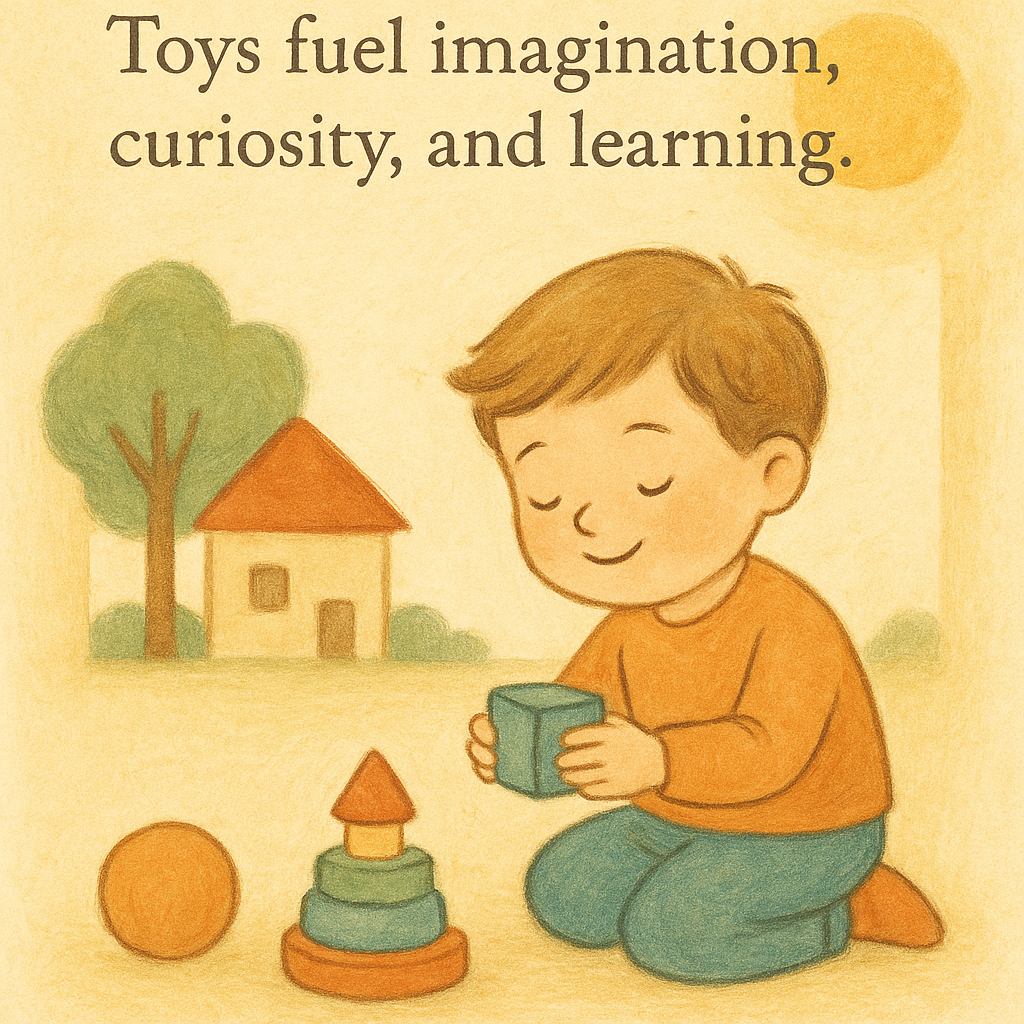
Why Toys Are Essential for Child Development: Science-Backed Insights
Share
Toys are often dismissed as mere playthings, but scientific research shows they play an essential role in children's cognitive, emotional, and social development. According to research by Pellegrini (2009), play activities using toys support brain development by enhancing problem-solving abilities, language acquisition, and social interactions. Toys act as critical tools that help children explore the world, experiment safely, and develop vital life skills.
Cognitive Stimulation Through Toys
Toys, especially those designed for problem-solving, such as puzzles or construction sets, stimulate the prefrontal cortex, a key region associated with decision-making and critical thinking (Ginsburg, 2007). Manipulating objects helps young minds learn cause-and-effect relationships, spatial awareness, and logical reasoning. Research confirms that early exposure to educational toys is correlated with higher IQ scores later in life (Fisher et al., 2008).
Emotional and Social Learning
Play with toys isn't only about solitary enjoyment. Dolls, action figures, and pretend play toys enable children to process emotions, practice empathy, and understand social dynamics. Studies show that role-playing with toys enhances emotional regulation and conflict resolution skills (Whitebread, 2012). Through shared play, children develop collaboration, negotiation, and leadership abilities.
Physical Development and Motor Skills
Physical play with toys such as balls, ride-ons, and stacking blocks promotes fine and gross motor skill development (Case-Smith, 2013). For infants and toddlers, manipulating toys helps refine hand-eye coordination, grip strength, and balance, all of which are foundational for later academic and physical success.
Creativity and Imagination Boost
Open-ended toys like blocks, art supplies, and pretend play sets ignite creativity. Vygotsky’s theory (1978) emphasizes that imaginative play is crucial for cognitive flexibility and problem-solving innovation. Toys provide a safe space for children to test new ideas, invent scenarios, and explore different perspectives, which are critical 21st-century skills.
The Takeaway
Investing in age-appropriate, diverse toys is not a luxury but a developmental necessity. Toys are the tools through which children build the foundation for lifelong learning, emotional resilience, and social competence. Parents, educators, and caregivers should recognize the immense educational value hidden in playful moments.
Cited Studies
-
Pellegrini, A. D. (2009). The Role of Play in Human Development. Oxford University Press.
-
Ginsburg, K. R. (2007). The Importance of Play in Promoting Healthy Child Development and Maintaining Strong Parent-Child Bonds. Pediatrics.
-
Fisher, K. R., Hirsh-Pasek, K., Golinkoff, R. M. (2008). Playing around in School: Implications for Learning and Educational Policy.
-
Whitebread, D. (2012). The Importance of Play. Toy Industries of Europe.
-
Case-Smith, J. (2013). The Importance of Play in Promoting Healthy Child Development and Maintaining Strong Parent-Child Bonds.
